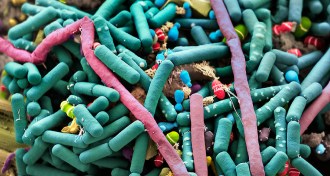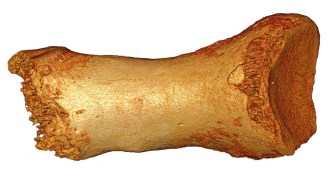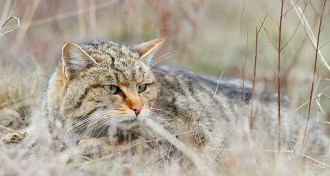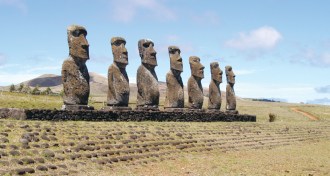Humans
Sign up for our newsletter
We summarize the week's scientific breakthroughs every Thursday.
-
 Life
LifeYear in Review: Your body is mostly microbes
Microbiome results argue for new view of animals as superorganisms.
-
 Psychology
PsychologyMoral Tribes
Emotion, Reason and the Gap Between Us and Them by Joshua Greene.
By Bruce Bower -
 Psychology
PsychologyWhen stressed, the brain goes ‘cheap’
A new study shows that stress makes you go with your gut, biasing your decisions against the more “expensive” method of thinking things through.
-
 Neuroscience
NeuroscienceParkinson’s patients drive better with brain stimulation
Patients make fewer errors with a little help from implanted electrodes, at least on a computer.
-
 Psychology
PsychologyBarcelona soccer team’s 2009 wins led to slight baby boom
In Bages, birth rates rose 16 percent, but in Barcelona they only increased 1.2 percent.
-

-
 Life
LifeNeandertal genes point to interbreeding, inbreeding
DNA from 50,000 years ago underscores modest levels of mating across hominid populations.
By Bruce Bower -
 Microbes
MicrobesA newfound respect for the microbial world
Despite what many people think about humans’ place in the scheme of things, scientists are finding more evidence that we live in a world of microbes.
By Eva Emerson -

-
 Animals
AnimalsChina trumps Near East for signs of most ancient farm cats
Earliest evidence found for grain as a force in feline domestication.
By Susan Milius -
 Health & Medicine
Health & MedicineDog dust may benefit infant immune systems
Microbes from pet-owning houses protected mice against allergy, infection.
By Nathan Seppa -
 Archaeology
ArchaeologyEaster Island’s farmers cultivated social resilience, not collapse
A Polynesian society often presumed to have self-destructed shows signs of having carried on instead.
By Bruce Bower